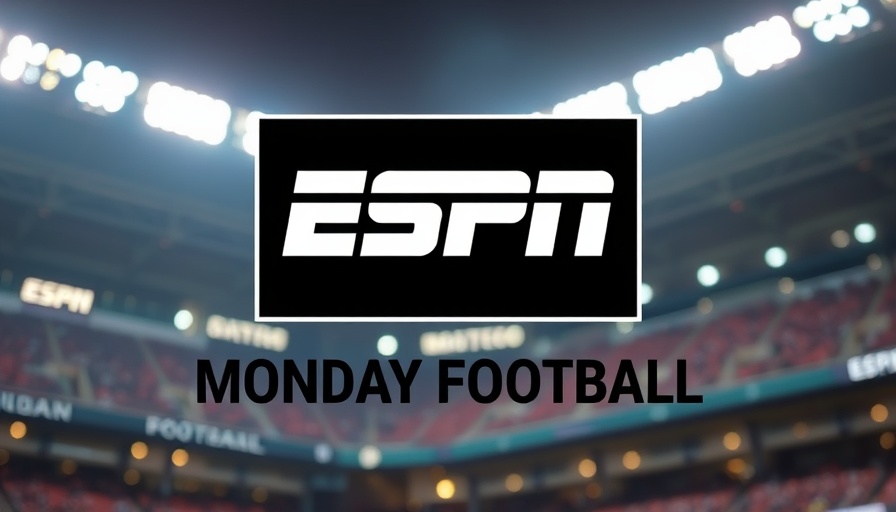
Understanding the NFL's Groundbreaking Move
The National Football League (NFL) has always played a crucial role in shaping the sports media landscape, and its recent nonbinding agreement with ESPN marks a significant milestone in this ongoing evolution. With the NFL Network, NFL Fantasy, and distribution rights for the popular RedZone channel in the crosshairs, this deal could redefine how fans, especially those in Austin and beyond, engage with the league.
The Value Proposition: What’s at Stake?
As ESPN gears up to potentially acquire these assets, it’s essential to understand the broader implications of this agreement. For one, the NFL stands to gain a 10% equity stake in ESPN, providing a financially robust partnership that underscores the league's value in the media industry. This move signals that the NFL is not only concerned with broadcasting but is also keen on forging an economic foothold in one of the most influential sports networks.
Why Austin Should Care
Austin, known for its vibrant sports community, stands to benefit greatly from closer ties between the NFL and ESPN. Increased access to NFL content can drive community engagement and help local businesses thrive, especially those involved in sports tourism and hospitality. Additionally, as major sporting events attract visitors, the potential boost to the local economy cannot be underestimated.
Historical Context: A Long Journey
The road to this agreement has been long and complex. The NFL’s initial announcement to explore the sale of its media assets came nearly five years ago, highlighting the ongoing evolution in sports media consumption. As audiences increasingly seek tailored sports experiences, networks like ESPN are pivoting to accommodate these demands. This lays a foundation for a potential seismic shift in how fans experience football.
Potential Challenges Ahead: Approval Process
Despite the optimism, this agreement still faces hurdles. Regulatory approvals and final negotiations with NFL owners add layers of complexity to the deal. If approved, it will be critical to address concerns related to monopolistic practices, given ESPN's already significant control over sports broadcasting.
The Future of Sports Broadcasting: What Lies Ahead?
This deal comes at a time when sports broadcasting is rapidly evolving, with streaming services becoming increasingly popular. The NFL's deal with ESPN may pave the way for new models of content distribution, leading to even more innovative approaches in how sports are consumed. For Austin residents, this could translate into greater accessibility to NFL games without traditional cable dependence.
Community Engagement: A Call to Action for Aficionados
As discussions unfold, it is essential for fans to engage with their local sports culture. Understanding these developments will empower Austin's residents to advocate for better access to sports media and support local sports initiatives.
In Conclusion: The Bigger Picture
This agreement highlights not just a shift in ownership but a transformative moment in how sports media might function in the digital age. By opening platforms and providing more dynamic content access, it promises to enhance the relationship between fans and their favorite teams, encouraging a stronger community connection.
In conclusion, with significant economic implications on the horizon for cities like Austin, keeping abreast of the developments surrounding this deal is not just important—it’s essential for anyone invested in sports.
 Add Element
Add Element  Add Row
Add Row 



Write A Comment